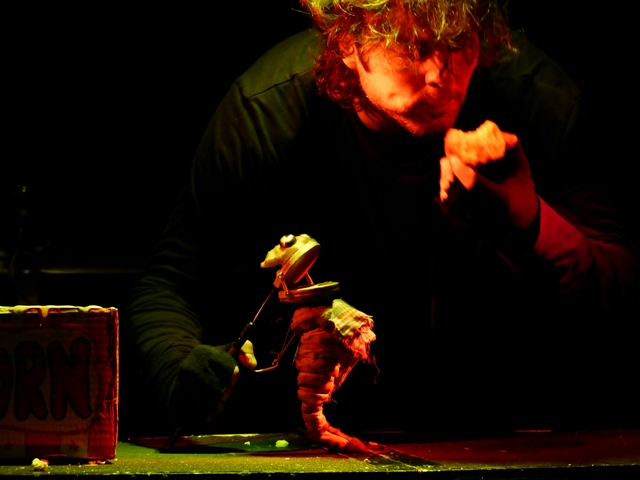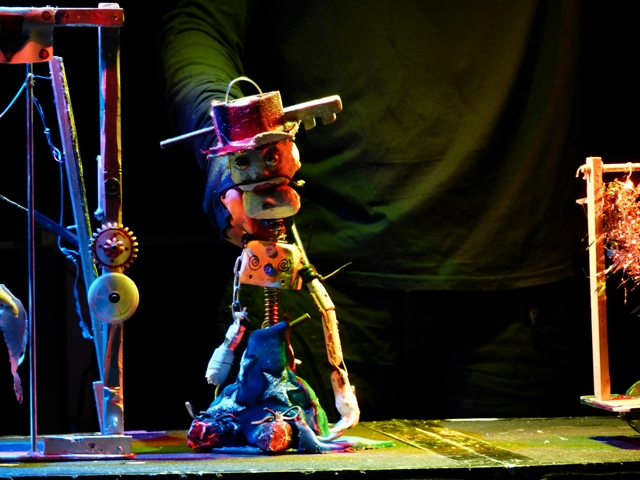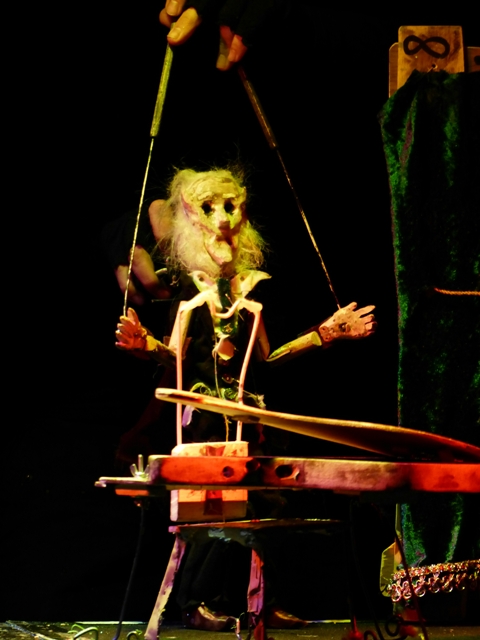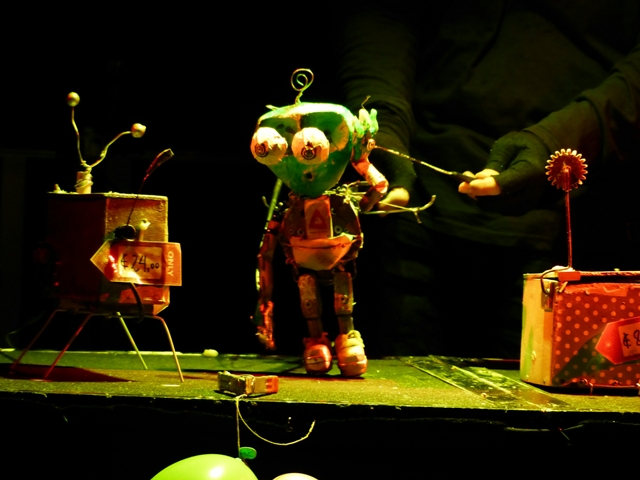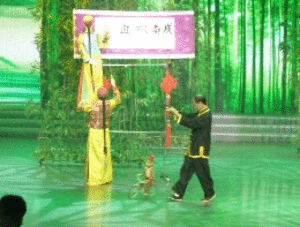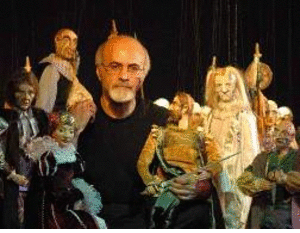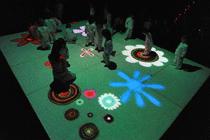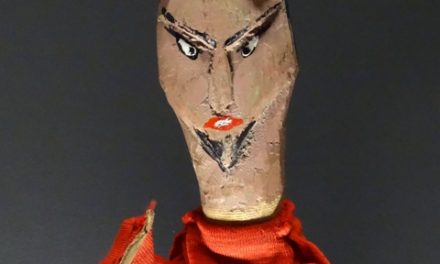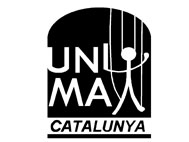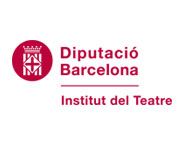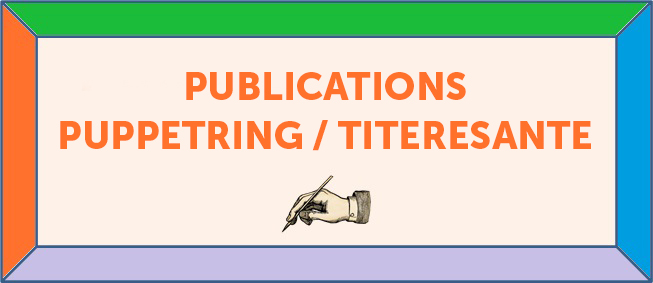Is it really possible to make a show comprising seven stories, each lasting seven minutes, directed by seven directors from seven different countries? David Zuazola, a Chilean puppeteer who lives in Madrid, has taken the number 7 as the organising principle of his new project. Magical and spellbinding, a sacred numeral that many believe to be at the heart of the organisation of the Universe!
The universe that Zuazola explores is personal, plumbing depths that are always murky and painful, in which memories, betrayals, deception and bullying are heard; babbling, through fragments of frozen time that orbit like meteorites loaded with bitter rage inside us. The puppeteer confronts them with the magic of the number 7, corresponding to the alchemy of the puppet; because this show, created by a mature David Zuazola, deals with puppetry, alchemy, bullying and friendship. The puppeteer has embarked on a powerful and ambitious project, which will doubtless prove to be one of the successes of the puppetry season.
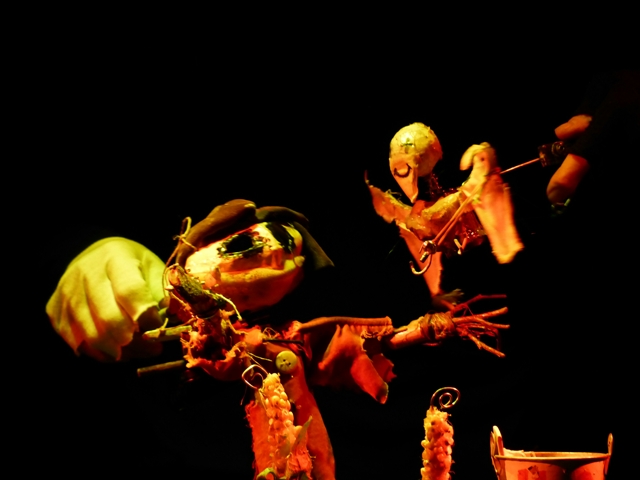 The Scarecrow. Photo by Jesús Atienza.
The Scarecrow. Photo by Jesús Atienza.
The feelings behind the demoniacal logistic of seven directors (of whom I’m one, though that doesn’t prevent me expressing my sincere and disinterested admiration) from seven countries, relates to a new way of inhabiting the world from a perspective of uprootedness by those who feel they don’t belong to any particular culture but, rather, have as their homeland friendship: face to face relationships between human beings who have fled social conventions and group definitions, and who prefer the squeal and crunch of the merciless clash with harsh reality. The planet is still vast and boundless, but restless spirits like Zuazola shrink it, so as to feel equally at home in Delhi, Bogota or Evora; in Taipei, Barcelona, Madrid or Berlin. Free cities of the world. And what of frontiers and national sentiments? Ill-fated obstacles for this Andean bird who loves the freedom of continents. Seven directors from seven countries have served as mirrors to enable this puppeteer from Chile to observe his reflection and extract, through the exchange of looks and words, the central tenet of this marionette alchemy: that the puppet supplies the artefact through which time and the past are called to account.
The Guardian of the Mermaid. Photo by Jesús Atienza.
How to face the sinister demons that lurk in the darkness and which seek to subjugate us with their eternal, pestering laughter? The ambiguous scarecrow that the Polish director, Marek Chodaczyński, sets to work in a popcorn factory, in order to lure wild birds to approach and eat his poisons; or Lady Death, that well-known friend of puppeteers, in the hands of master Manuel Dias fromEvora, Portugal, so well versed in how to treat Her! A “freak” appears in ‘Freak Show’ with its “Real Mermaid”, condemned to life as an exhibit in an aquarium, with the delicate gaze of director Chiafi Hsu from Taiwán..
The Vampire. Photo by Jesús Atienza.
‘Maggot’, another monstrous insult, where the puppeteer is forced to swallow popcorn and takes revenge on the figure of the poor caterpillar, a beautiful puppet; splendidly directed by Merlin Puppets Theatre, from Greece. In this sequence, the show disrupts the obsessive mechanism used so far and engages with the audience. Following this, we move into the dark of night: ‘The Vampire’, fed up with the moon and time itself, anxious for light and death, the episode in which I had the pleasure to participate. The vampire is a monstrous enemy, but, nevertheless, a victim of frozen time, of time that turns its back. We draw towards the end with ‘Alien’, a hilarious visitor from outer space from which Liliana Palacio, of Columbia, extracts refreshing moments of absurd humour, in a very modern-day toy shop. The final work of the show is by director Anurupa Roy, from India; the seventh piece in the series and the show’s epilogue, when the powerful game of reflection and doubles which Zuazola has offered us, all through the show, is revealed. Everything falls into place and the mirrors overlap in the figure of the puppeteer that becomes his own double. Maximum distance for a melodramatic ending.
It’s understandable that to flee such childhood monsters the puppeteer Zuazola, who also calls himself El Loco (the Madman), took the decision to escape into the wide world, that vast country where the sun never sets (though it likes to play with shadows and mysterious moons). Working with his seven director friends, he set out on a liberating alchemical process: to unfreeze seven crystallisations of raw time, bringing them to life through the eyes and inspiration of seven different people, thus allowing him to transform these episodes and give them new form. He does so, too, without abandoning ‘El Loco’ puppeteer’s commitment to his personal style of DIY inventor, working with objects found on the street and recycled, from which emerge strange puppets, somewhere between mechanical toy and voodoo doll, primitive idol and robotic nightmare.
It goes without saying that there is still a need for the performance run that’s always necessary to breathe life into time – still trapped in the seven-minute capsules – to give each scene full flight. But the artist has staged the seven pieces without the hinges between them squeaking, and has achieved a fundamental aesthetic unity; this emerges powerfully out of the style developed by Zuazola in ‘Ala Sucia’ (Dirty Wing), the previous show with which he toured to Europeanfestivals with such success.
Let’s hope that the fruit ripens in contact with the public, and that Time, Master of Masters – a friend to anyone who courageously clambers, alone, on to its back – will accompany and guide the show with a wise hand across the thousand stages of the wide world.
Translated from Spanish by Rebecca Simpson.

